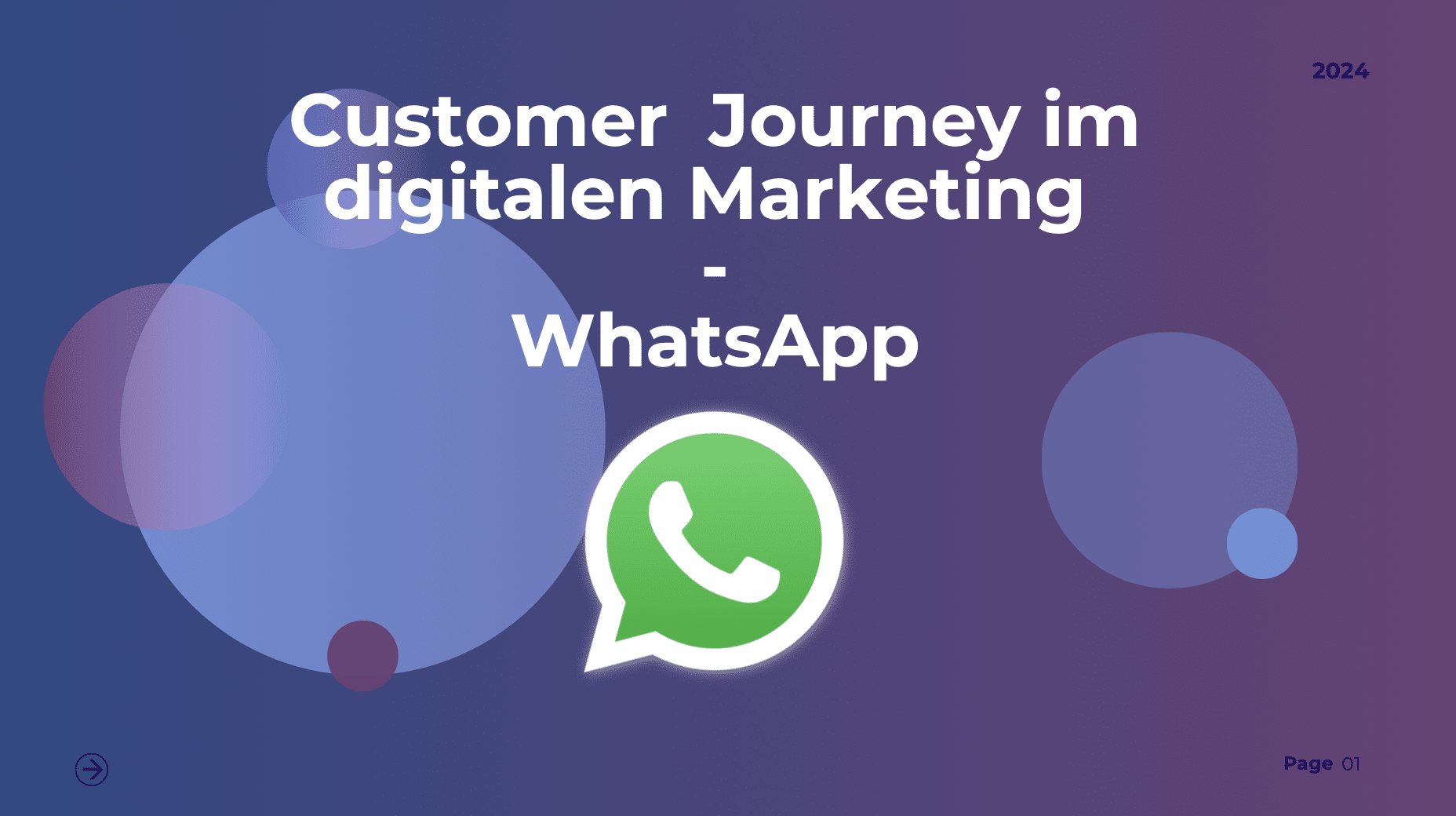WhatsApp in the Customer Journey: A Key Channel in Digital Marketing
In today’s digital world, WhatsApp is playing an increasingly central role in communication between businesses and customers. As one of the most widely used messaging apps worldwide, WhatsApp offers companies the opportunity to connect with customers directly and personally. The following analysis explains how the medium can be integrated into the customer journey and its advantages over traditional channels like email.
WhatsApp as a Social Commerce Platform
Social commerce combines social media with e-commerce, facilitating purchasing decisions through direct communication, recommendations, and reviews. WhatsApp is particularly effective in this area as it enables personal and immediate interaction. Compared to email marketing, the app boasts an impressive 98% open rate (vs. 22% for emails), direct delivery without spam filters, and the ability to use diverse media formats.

The Role of WhatsApp in the Customer Journey
Businesses can strategically use WhatsApp throughout the customer journey:
- Awareness: Companies can increase brand recognition and establish initial customer contact through targeted ads, QR codes, and WhatsApp newsletters.
- Consideration: Interactive chatbots or live agents assist customers with product selection, answer questions, and provide direct product comparisons.
- Purchase: In supported regions, the app enables direct payment processing, reducing purchase abandonment rates and optimizing the buying process.
- Service: Automated responses, order updates, and return processes via WhatsApp simplify customer service and enhance customer satisfaction.
- Loyalty: Businesses can share personalized offers, exclusive discounts, or product recommendations via the medium to build long-term customer relationships.
WhatsApp Business and API Features
Businesses can optimize customer communication with Business and the Business API through various features:
- Product catalogs allow customers to browse offerings directly within the app.
- Automated messages save time and improve response efficiency.
- CRM integrations with platforms like Salesforce or Shopify facilitate centralized customer management.
- Chatbots handle frequent inquiries and personalized recommendations.
Challenges and Recommendations
Although WhatsApp offers many benefits, challenges such as privacy concerns and spam risks remain. Businesses should limit message frequency, send only relevant content, and provide clear opt-out options.
WhatsApp itself could improve user experience by enhancing privacy features and offering more self-service tools. Consumers should consciously opt in or out to manage their preferred communication methods.
Conclusion
WhatsApp has the potential to revolutionize how businesses communicate with customers. By strategically integrating the app throughout the customer journey, companies can enhance visibility and build long-term customer relationships.
Credits: This analysis is based on the presentation by Bo Ehrich and Ben Mattis Lorenzen (2024).